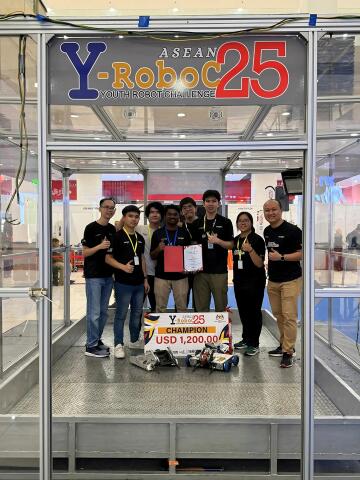Careers In Mechatronics And Robotics
Mechatronics and robotics are key industries in the fourth industrial revolution (or 4IR). This article provides an overview of popular mechatronics and robotics careers.

Mechatronics is a branch of engineering that combines computer science, electronics, mechanics and control theory. Robotics is an area embedded in mechatronics concerning the creation and operation of robots.
Both mechatronics and robotics are at the forefront of creating better products and devices for the benefit of humankind.
Subjects in a Mechatronics Engineering Course
Many higher education institutions in Malaysia offer undergraduate programmes in mechatronic engineering. It is typically a four-year course which provides students with the skills and knowledge on mechanical systems, machines, computer hardware and software, and electronics. The key components of any mechatronics engineering course are Automation Engineering, Mechanical Engineering, Robotics and Electrical & Electronics Engineering.
Students have to complete a number of projects and work placements throughout the programme.
To become a professional engineer, graduates need to be registered as a Graduate Engineer with the Board of Engineers, obtain the necessary work experience, professional training, and pass the Professional Assessment Examination conducted by the Board. For information on how to become a professional engineer in Malaysia, visit http://www.bem.org.my/
What Do Mechatronics Engineers Do?
Mechatronics engineers are responsible for creating reliable electro-mechanical and computer related systems when it comes to product manufacturing. They continually find ways to improve and develop existing processes and systems. Mechatronics engineers also develop programming logic for manufacturing equipment, create prototypes of mechanical devices and test new mechanical devices for automation purposes. Furthermore, mechatronics engineers also work with scientists to enhance laboratory equipment and write new procedures on how to automate them. After the design and testing stages, mechatronics engineers publish engineering reports and create design documents for parts, assemblies, or finished products.
Industries that Need Mechatronics Professionals
Telecommunications & Information Services
Mechatronics graduates may work as high-voltage engineers, field technicians and networking technicians, among others. They are responsible for designing and maintaining various components of mobile phones, computer networks, fibre-optic cables, electrical systems and many more.
Transportation and Logistics
Careers in this industry include operating custom-designed machines, computing infrastructures, complex transportation processes and equipment that are needed to regulate large scale deliveries of goods.
Agriculture, Food and Forestry
Mechatronics engineers are hired to design and improve existing greenhouses to increase food production and manage irrigation systems. They also apply engineering principles to help with the sustainability of forests.
Biotechnology, Life Science and Medical Equipment Design
Bio-inspired machines, such as implants and prosthetics, and medical devices are produced by mechatronics experts. These machines and devices will provide medical professionals with better clinical equipment to improve surgical procedures and rehabilitation strategies.
Renewable Energy
Mechatronics graduates are employed in this industry to spearhead innovations in solar power, wind energy, biofuel, hydropower and geothermal technologies. They will test and improve components used in wind turbines and solar panels, among others.
Mechatronics engineers can also find employment in robotics, aerospace, defence, automotive, manufacturing, industrial research and oil and gas sectors.
The Skills You Need
As a mechatronics engineer, strong skills in mathematics and IT are essential. An interest in mechatronics, electronics and machines is also important. Mechatronics engineers also need to have good communication and writing skills as they have to prepare reports and manuals. A detail-orientated and methodical approach to tasks is also required as mechatronics engineers work with machines daily. Other important skills are problem-solving, ability to work as part of a team and technical knowledge.
Mechatronics graduates can easily find employment in a variety of industries. The demand for experts in the field will continue to increase as we move into a more automated and technologically advanced world
Advices





News from Institutions


















